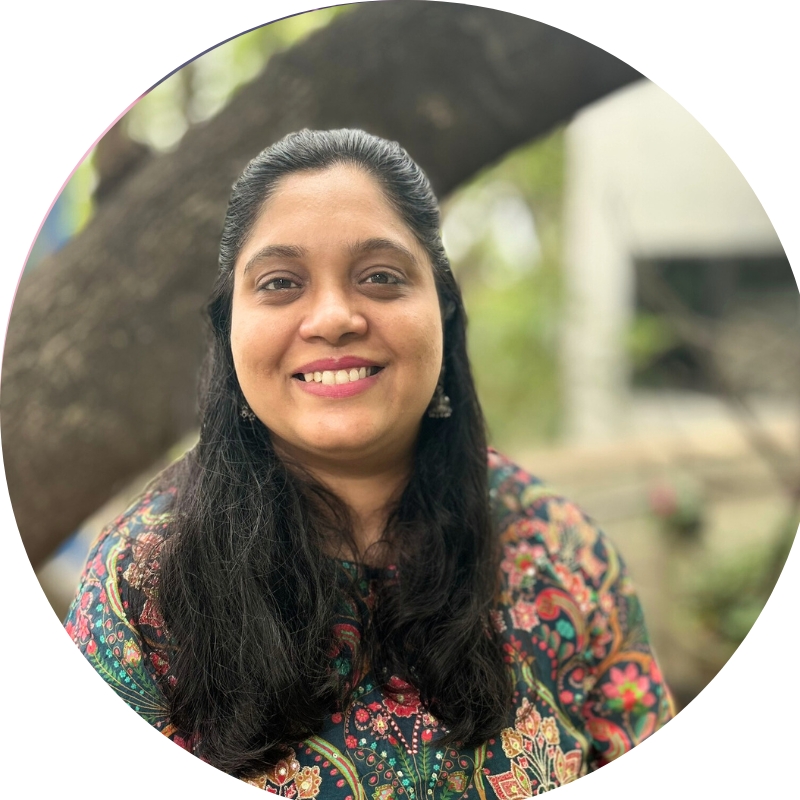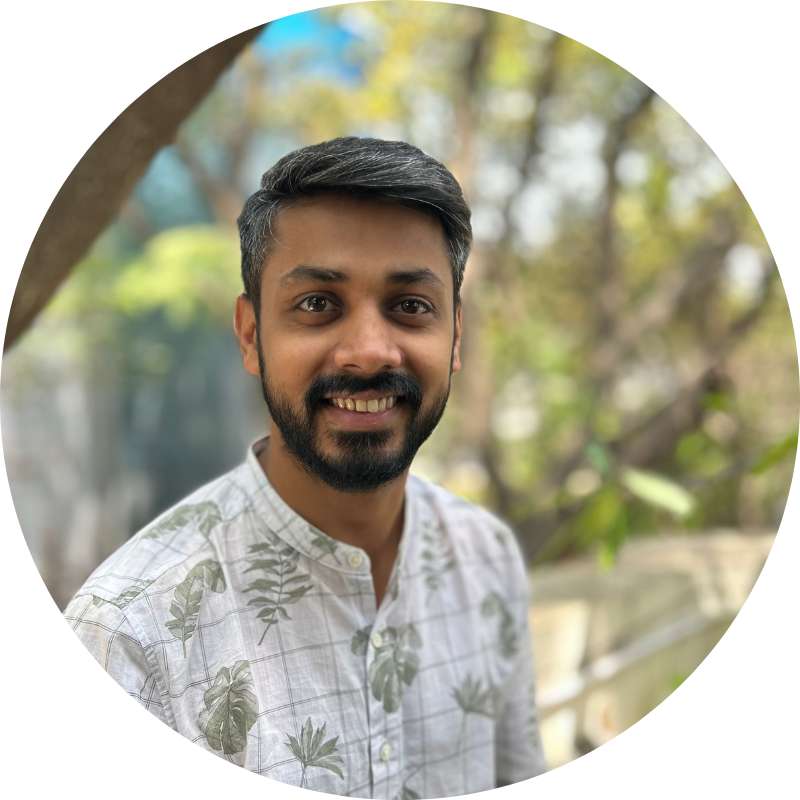The Centre for Law & Policy Research (CLPR) organised a Training Programme for the ‘Constitution Defenders Fellows’ from July 5th to July 7th, 2024. The Training Programme was focused on enhancing capacities of legal practitioners for better understanding on the scope, strategies and design of Public Interest Litigation (PIL) cases and on litigation concerning cases of domestic violence. The cohort of Fellows comprises advocates practicing in different judicial forums across the country and are engaged in and rights-based litigations with CLPR’s support and guidance.
Day 1

The first day of the training commenced with Jayna Kothari, Executive Director at CLPR, outlining the programme agenda and providing an overview of the sessions over the course of two days. This was followed by a screening of the documentary film, ‘The Advocate’ by Deepa Dhanraj, which portrayed the life of Advocate K.G. Kannabiran, pioneering human rights lawyer and co-founder of the People’s Union for Civil Liberties (PUCL). The rest of the evening was dedicated to an interactive session where Fellows and other participants had an engaging discussion and shared their reflection on the documentary.
Day 2
The second day of the training commenced with an update session where 10 Constitutional Defender Fellows spoke about their ongoing projects and the notable progress made in their respective cases since they had last convened for a virtual meeting.
- Ms. Iqra spoke on her litigation practice in Srinagar, where she is working on cases concerning the rights of transgender persons, children living with disabilities (Early Intervention Centres), POCSO cases, and domestic violence matters. She is also intending to approach the court on behalf of an an acid attack survivor and in an issue concerning the Gujar nomadic community.
- Ms. Vasudha is a practicing advocate in Maharashtra working on matters of Right to Education for marginalized communities, cases of domestic violence, and rights of transgender persons, especially the issue of arrests in cases of begging.
- Mr. Kiyeka, a practicing advocate engaged cases on the rights of transgender persons in the North-Eastern States, elaborated on his engagement in cases concerning the right to education owing to the inadequacy of teaching staff in government schools, the compensation for loss of property owing to human-animal conflicts, and the plight of manual scavengers.
- Mr. Shreyas, a lawyer with visual impairment, mentioned his efforts to get banks to make their websites accessible as per the Web Content Accessibility Guidelines (WCAG), and the Karnataka Government’s self-employment scheme for persons with disabilities. He is also involved in a case challenging the rejection of employment opportunity (teaching post) to visually disabled persons, relationship matters, pension for persons with disability, and a matter concerning a BSF personnel who acquired a disability during service.
- Ms. Shobha elaborated on her work for the persons with vision impairment along with a Charitable Trust and spoke of the cases concerning domestic violence, maintenance matters, compensation in the Motor Vehicles Act, and enforcing provisions of Disability Act 2016 that she is currently working on.
- Mr. Deepak detangled the nitty-gritty of his case on the Maharashtra Government’s amendment to the Rules framed under the Right to Education Act, 2009, in addition to the pro bono legal assistance offered to a person with a disability and contesting Maharashtra Government’s advertisement regarding a foreign scholarship. He has also sent legal notices in maintenance cases and filed representations in flood-related matters before District Authorities.
- Ms. Ujjaini is involved in a PIL concerning the Citizenship Amendment Act, the case of indefinite detentions of Rohingya refugees, and basic facilities in detention centres. She has also been working for trafficked bonded labor girls, along with domestic violence cases.
- Sr. Jomol Joy from Wayanad detailed the domestic violence, maintenance, and divorce cases of Adivasi women she is working on, and the issue of school admissions for children from indigenous tribes.
- Ms. Aparna, CLPR Litigation Associate, updated the group on her cases on the right to education, surrogacy, sexual harassment at the workplace where she is representing a person with disability, a PIL against exclusion of transwomen from the definition of single unmarried women in matters of divorce and maintenance and cases under the SC/ST Prevention of Atrocities Act.
- Mr.Kuldeep shared the challenges in registering an FIR on matters of atrocities against Dalits in Uttar Pradesh while discussing the status of matters concerning Prevention of Atrocities Act and Manual Scavenging Act. He also noted that the matters range from denial of access to water to that of instances of murder and sexual violence.
This session was a great opportunity for Fellows to gain a more comprehensive understanding of the works their peers are doing and also come together to deliberate and have targeted discussions and interventions to effectively address the unique challenges faced by the Fellows working to facilitate access to justice for marginalized persons and groups. These issues encompass a wide range of challenges ranging from structural barriers faced by persons with disabilities to issues of caste-based discrimination, instances of domestic violence, denial of rights of transgender individuals, denial of the right to education to students from marginalised groups and communities and the rights of refugees within detention centres. The session concluded with Ms. Jayna Kothari offering valuable guidance to the Fellows, emphasising that the work doesn’t end with obtaining favourable orders, and must be complemented with efforts towards ensuring the implementation of court directions and orders to ensure the change translates on ground.
The second session for the day, ‘PIL in India: History, Evolution and Critiques’ was facilitated by Prof. Arun Thiruvengadam from the National Law School of India University (NLSIU) and Fellows had been assigned two readings by Prof. Upendra Baxi and Prof. Anuj Bhuwania for this session. Arun clarified the terminology of Public Interest Litigation (PIL) and Social Action Litigation (SAL) following Prof. Baxi’s argument, drawing from his experience at New York University. He traced the history of PILs in India and contrasted it with the experiences of the Fellows. This was beneficial in understanding the evolution of PIL from the era of legal luminaries like Justice Krishna Iyer to the present day, as well as the innovations in the landscape of Public Interest Litigation in India. The session also delved into the critique of PILs, drawing from Anuj Bhuvania’s book, Courting the People : Public Interest Litigation in Post-Emergency India.

The next session for the day focused on building drafting skills and capacities for the Fellows and was facilitated by Jayna Kothari. For this session, Jayna chose to adopt an interactive format, organising the Fellows into 5 two-member teams and also inviting student interns working with CLPR to be part of the session. The six teams were then split into two groups, with three teams working on a case concerning transgender persons which engaged with the provisions of Bhartiya Nyaya Sanhita, the revised Penal Code, and the remaining 3 teams working to draft a Writ Petition in the form of a PIL challenging the Amendment to the Rules notified under the RTE Act, 2005 introduced by the Maharashtra Government. The teams received extensive guidance and feedback from Jayna as they developed their drafts as she provided them clarity on settling the questions of law involved in a case, drafting the prayer clause in a petition and also being mindful of the components of a PIL.

In the following sessions, the focus was on developing and enhancing the professional skills of the Fellows to support them in their daily work. Payal Gaikwad, Project Coordinator at CLPR, conducted a session on ‘Legal Professionalism in Human Rights Work’, which covered key principles of legal professionalism and ethics. The responsibilities of advocates to their clients and the courts were also discussed. The session delved into the five stages of preparation, from the first stage of client interaction and counselling to the final stages of filing a case before a court. The Fellows received guidance on how to effectively carry out their litigation work as Constitution Defender Fellow.

The concluding session of the day was dedicated to ‘Self-Reflexivity and Risk Assessment for Human Rights Lawyers’ and was led by Ms. Aparna Mehrotra, Litigation Associate at CLPR. She discussed Michele Leering’s five components for a reflective practitioner to help the Fellows think through their role as legal practitioners and invited them to engage in a discussion on practical considerations and challenges that one confronts when in public interest litigation work, including risks of lack funding, and having contingency plans to ensure that there is a sustainable model for working on issues of access to justice.
Day 3
The final day of the training program began with a workshop on ‘Domestic Violence Laws & Remedies’ by Ms. Jhuma Sen, Advocate at the Calcutta High Court. Jhuma’s distinguished expertise as an accomplished lawyer, academic, and policy consultant brought was instrumental to the session. She began by locating issues of domestic violence in the larger framework of Constitutional law, particularly the right of a woman to live with dignity. Jhuma’s insight on the historical importance of the accomplishments of the second wave of feminism in India during the 1970s-1980s contextualized the legal framework for women in India under the IPC. Different facets of legal framework on domestic violence were examined, including the challenges posed by the inconsistencies of the Bhartiya Nyaya Sanhita Act 2023. The session also provided an opportunity for an extensive discussion and dual analysis of criminal and civil remedies under the laws on domestic violence with emphasis on the myriad ways a practitioner can effectively intervene while litigating matters of domestic violence. Jhuma engaged with the Fellows and provided her inputs on the cases they were currently involved in, discussing the strategies they could adopt in each case.

The day concluded with an open discussion where Fellows and participants spoke about the need for government intervention, emphasized the importance of being aware of the challenges faced by marginalized communities, and acknowledged the progress made by social movements and successes through strategic litigation.

The training program was a great opportunity to encourage collaborative learning and peer engagement that will facilitate capacity building for fellows who are pursuing strategic litigation opportunities to realize the rights protected by the Constitution. These endeavours are crucial to the project’s goal of empowering marginalised communities and protecting their constitutional rights.


